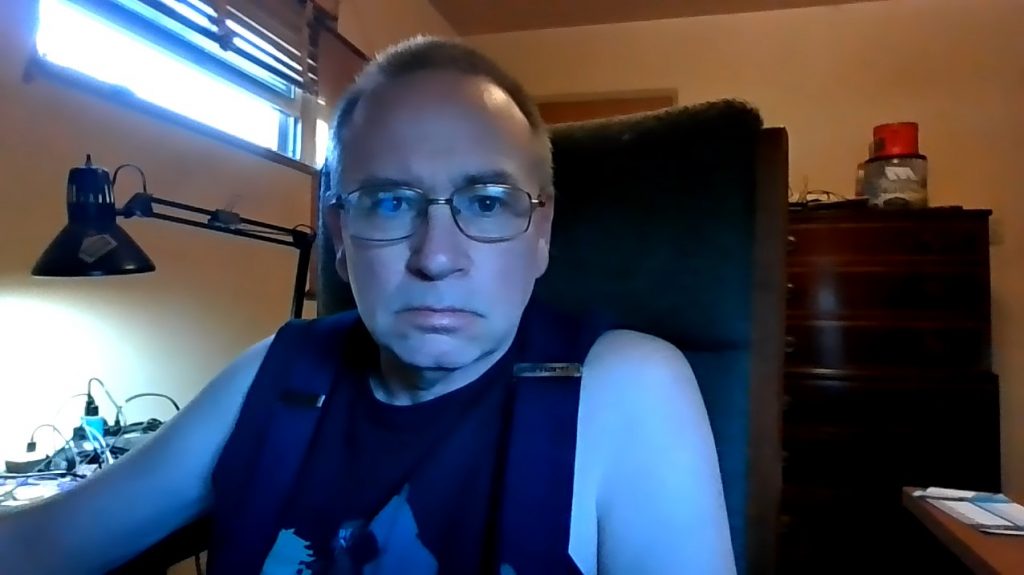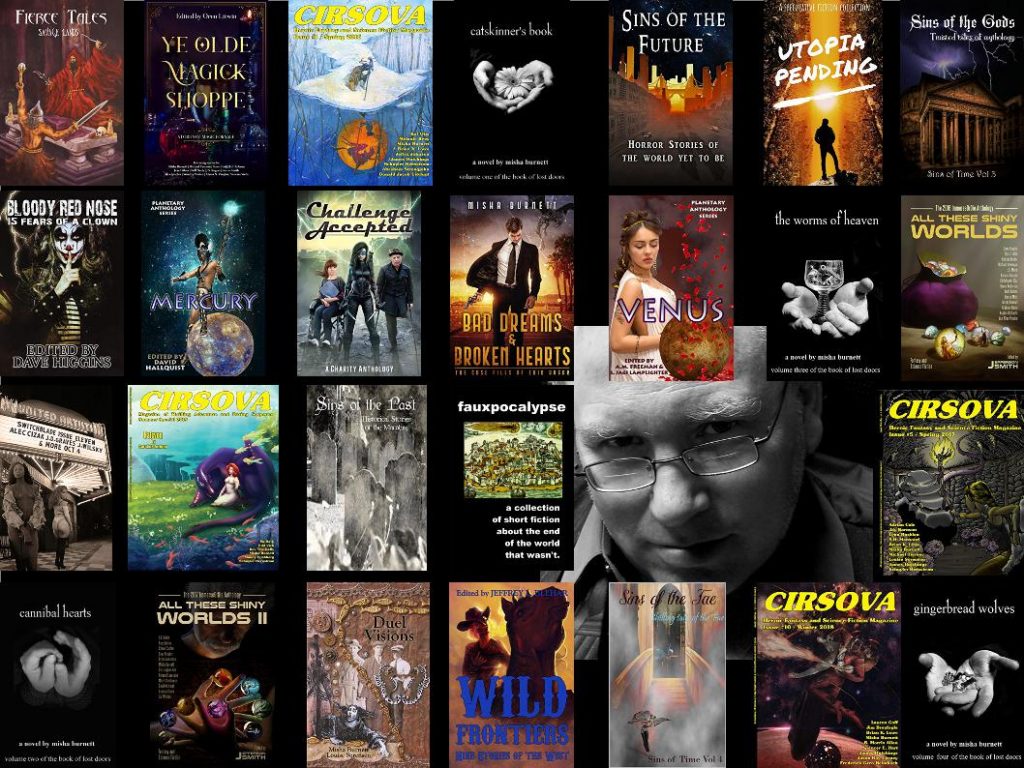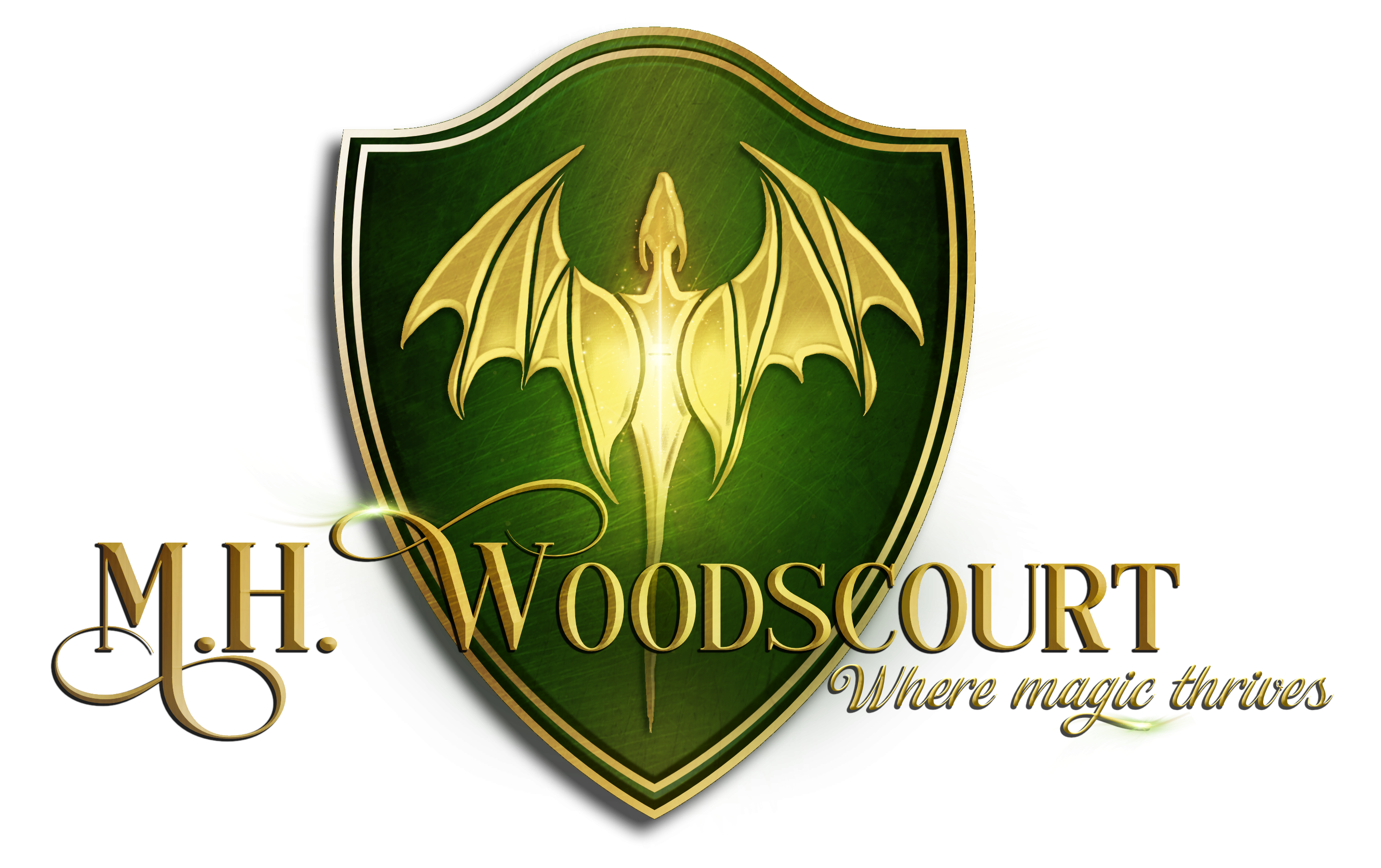Misha Burnett

This week I had the great pleasure of interviewing a talented author of Weird Tales of Fantasy. Read the interview right here!
***
Thank you so much for agreeing to this interview! To kick things off, tell me a little about yourself.
I’ve lived a lot of different places, but I consider St. Louis my home town. Most of my jobs have been blue collar and technical—I’ve been a locksmith, a cab driver, a postage machine repairman. I don’t really have a lot of hobbies, but I am in a couple of online D&D games. I nap a lot, when I have the chance.
What led you to write fantasy?
I’ve always wanted to write stories and the stories I’ve loved the best have always been those that are hard to classify. I tend not to think in terms of genres, but I like writing about weird and impossible things. As a kid I wanted to have adventures like James from James And The Giant Peach and Milo from The Phantom Tollbooth. I still do, actually.
What sub-genre(s) of fantasy do you prefer to write?
I’ve used Weird Tales to describe my work, and I feel a spiritual kinship with the New Wave writers of the 1960s and 1970s. I’ve never cared much for the “olden times” style of fantasy—I’m very much a late 20th Century/early 21st Century man and I don’t know anything about swords or horses or castles.
I admire that. I can’t seem to do modern-style fiction justice. Do you write with a particular message or worldview in mind?
I suppose the things I believe come through in my work, although I try to avoid any overt messages. I believe that ordinary people can do extraordinary things, when they have to, and those are the kind of people I write about. My characters are plumbers and electricians instead of wood-choppers and shepherds, but it’s the same “message” as in the old fairy tales—the world is a strange and dangerous place, and it’s best to keep your eyes open and one hand on your hatchet.
I feel those timeless messages are timeless for a reason. What is your preferred writing style?
Past tense, about equally split between first and third person. Some stories seem to need the intimacy of a first person narrator and some stories work better with a little distance, I suppose. In general I try to make my prose style as close to transparent as possible to let the story take center stage.
How do you feel about a hero vs. a protagonist in fiction?
I think they’re synonyms. You can get into some fun arguments over whether a particular character is heroic or not, but I don’t see them as being very productive. I do try to make my main characters admirable, in some way. I think it’s more fun to read stories about people that we can look up to.
I definitely agree with that. Do you prefer a sympathetic villain or someone a reader loves to hate? Or is there another kind of villain you prefer to write?
I seldom set out to write a villain, as such. Main character have obstacles to achieving their goals—that’s what makes a story exciting. And sometimes the obstacles are people. But I don’t keep categories of characters in my head—hero, villain, sidekick, mentor, whatever. They are just people.
Tell me more about one of your published works.
My most recent work is called Bad Dreams & Broken Hearts and it’s a collection of related short fantasy stories. They are about a detective who investigates magical crimes in a city kind of like 1960s Los Angeles. Dracoheim has cars and telephones and radios, but it also has magi and demons and dragons. Think Dragnet, but set in Lankhmar.
That sounds like a terrific read. I’ll definitely be checking it out. What are you working on now?
I have two collections of short stories in the works, one of Dark Fantasy which should be coming out from Storyhack Press over the summer, and then a Science Fiction collection coming out in the fall from another small press. Both of these collections will be a mix of previously published and unpublished works. I work mostly in short stories these days.
That’s great! Short stories are definitely a weak area for me. Are you traditionally published or do you publish independently? Why did you choose that path to send your books into the world?
I publish with small independent presses. I believe in supporting independent media channels, not just as a reader, but as an author. I’ve worked with some excellent editors and publishers who could build the next generation of publishing houses—but only if they have authors willing to give them exclusive content and work with them to produce high quality books.
I respect that a lot. Who are your favorite authors?
Tim Powers, Samuel Delany, China Meiveille, Clive Barker, Philip Dick, George Alec Effinger—pretty much all writers who make their own rules.
What are your writing habits?
I write in my home office, usually listening to Pandora—I have a dozen stations and select music to fit the mood of whatever I am writing. Generally I try to write for a while before I go to work, which involves waking up at 4am or so, and then in the evenings. I drink coffee in the morning and cheap wine at night. Really cheap wine—the kind that comes in a box.
Do you prefer to plot your books out in advance, or do you dive in and see where the story takes you?
I only have a vague idea of where a story is going when I start it, and I’m usually wrong.
I feel that on a personal level. Haha! So, do you enjoy writing plot-driven or character-driven stories more?
I don’t think I can distinguish between them, honestly. Plot is just “what the characters do” after all. If you replace a character in a story with somebody else, you’re going to get a different plot. On the other hand, the only way that character can be revealed is through action—a person is what that person does.
What type of fantasy medium do you enjoy most?
I’ve always been a reader, first and foremost. Lately I do virtually all of my pleasure reading by audiobooks. and while I still consider that reading, the experience is different. A good narrator can really help me get lost in a book.
What destination in the world would you most like to visit?
The beach. Any beach, really. I’m easy. Sun, sand, sea, and a drink with an umbrella in it—that’s all I want.
Writers, and artists in general, usually have a few quirks. What is a fun quirk you have?
I have a remarkable memory for anything in verse. I’ve never set out to deliberately memorize a poem in my life, but I can quote pages of poetry. The downside of this is that I don’t have any quality filter—I memorize the bad as much as the good. I will be able to recite the lyrics to “The Man With The Golden Gun” on my deathbed.
In closing, what advice do you have for up-and-coming writers?
Be patient. The first thirty years are the hardest.
Thank you again for interviewing with me, Misha! It’s been rewarding to get an inside look at your writing process! Best of luck as you continue weaving stories.
To keep up with Misha Burnett and his fantasy books, check out the links below!
Blog | Twitter | Amazon

